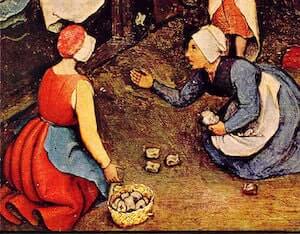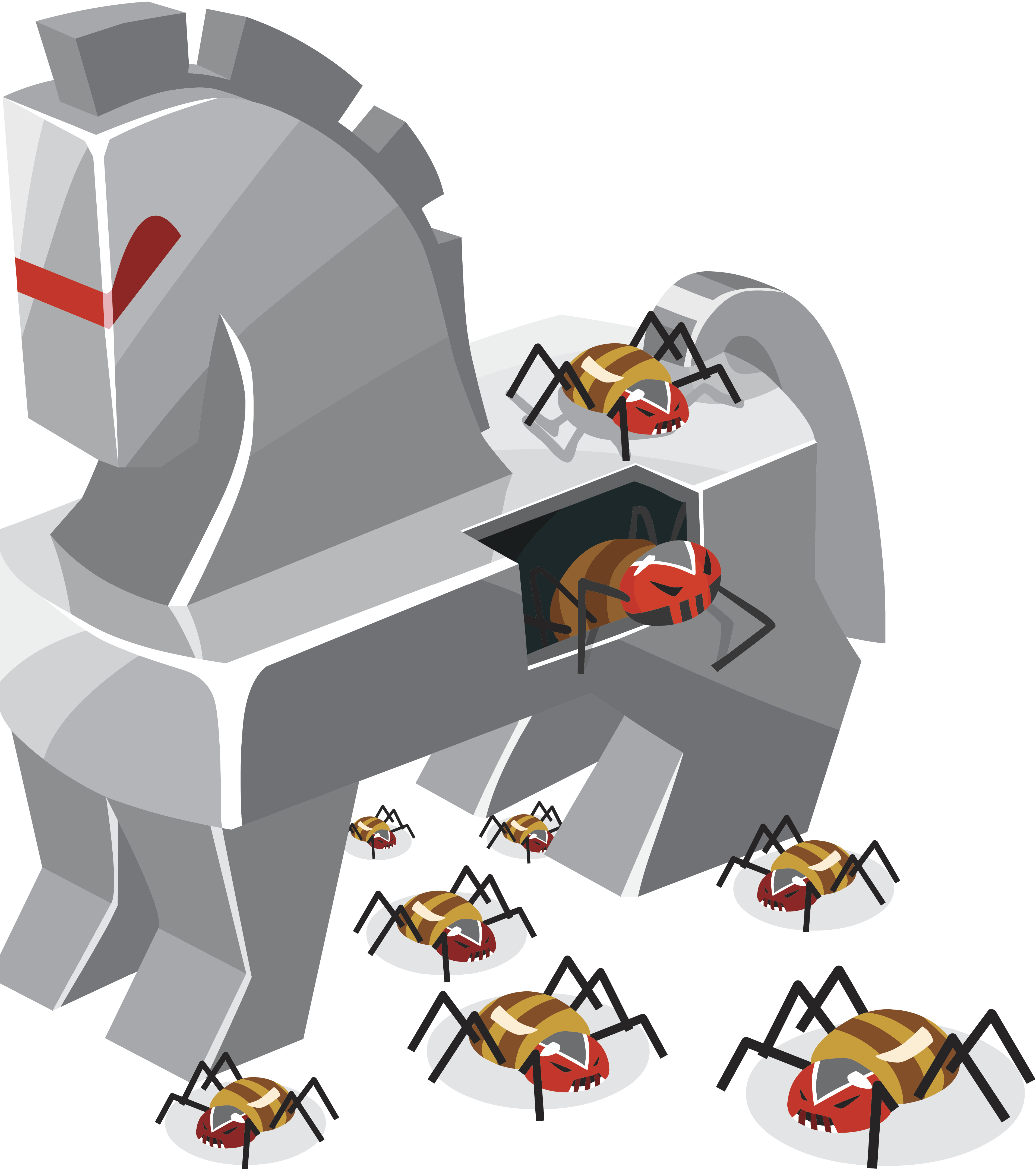If I asked you to say something "magical," what would you say? Hocus pocus? Abracadabra? Open sesame? I heard all of those phrases as a child and used them in my make-believe childhood world. Do they hold any power? I doubt that they do, but they have a long history of use in "real" magical ceremonies and also in theatrical magic shows.
Let's look at the origins of those magical phrases.
Hocus-pocus is a generic term that may be derived from an ancient language and is currently used to refer to the actions of magicians, often as the stereotypical magic words spoken when bringing about some sort of change. It was once a common term for a magician, juggler, or other similar entertainers.
The earliest known English-language book on magic (known then as legerdemain "sleight of hand"), was published in 1635 as Hocus Pocus Junior: The Anatomie of Legerdemain.
"Hocus Pocus" also was the stage name of a well-known magician of that time, William Vincent, who may have been the author. He is recorded as having been granted a license to perform magic in England in 1619.
But it is unlikely that Vincent invented the phrase and the origins of the term remain obscure. I found a bunch of conjectures. Some say it a garbled Latin religious phrase or some form of "dog" "pig" Latin.
In searching other languages, we find in some Slavic languages, "pokus" means an "attempt" or an "experiment." There is a tenuous connection with alchemy going back to the court of Rudolf II, Holy Roman Emperor (1552 – 1612). I saw that hocus may mean "to cheat" in Latin or a distorted form of the word hoc meaning "this." Together they would give the sense of attempting to cheat.
Another theory (in the Oxford English Dictionary) has the origin from hax pax max Deus adimax, a pseudo-Latin phrase used as a magical formula by conjurors. A similar distortion theory is that it may be taken from the Catholic liturgy of the Eucharist, which contains the phrase “Hoc est enim corpus meum” (meaning "This is my body") particularly the hoc est corpus portion. This is a mocking suggestion that a magician is changing something in the same way that the Catholic Eucharist changes water and wine through Transubstantiation.
The final suggested origin is that it comes from the Norse magician and "demon of the north" Ochus Bochus.
Abracadabra is an incantation used as a magic word in stage magic tricks, and historically was believed to have healing powers when inscribed on an amulet.
Abracadabra's origin is also unclear but its first occurrence is in the second-century works of Serenus Sammonicus. His book called Liber Medicinalis (sometimes known as De Medicina Praecepta Saluberrima) who was a physician to the Roman emperor Caracalla. In that book, he prescribes for malaria and other lethal diseases wearing an amulet containing the word written in the form of a triangle. It is found on Abraxas stones, which were worn as amulets. Subsequently, its use spread beyond the Gnostics.
Possible folk etymologies include from Hebrew meaning "I will create as I speak", or in Aramaic "I create like the word." There are also some similar words in Latin and Greek such as abraxas. but according to the OED Online, "no documentation has been found to support any of the various conjectures."
The Greek abraxas is a possibly related word of mystic meaning in the system of the Gnostic Basilides and appears in Gnostic texts such as the Holy Book of the Great Invisible Spirit. It was engraved on certain antique gemstones, called on that account Abraxas stones, which were used as amulets or charms. (Their spelling on stones was "Abrasax" (Αβρασαξ) and the more modern "Abraxas" probably comes from a confusion made between the Greek letters sigma (Σ) and xi (Ξ) in the Latin transliteration. The seven letters may represent each of the seven classic planets.
In the English speaking world, abracadabra was frequently dismissed. The Puritan minister Increase Mather dismissed it as being powerless. Author Daniel Defoe wrote dismissively about Londoners who posted the word on their doorways to ward off sickness during the Great Plague of London.
Today the word is now commonly used simply as an incantation in the performance of theatrical magic.
"Open Sesame" is another common magical phrase that was found in the story of "Ali Baba and the Forty Thieves" in Galland's version of One Thousand and One Nights. In the story, it opens the mouth of a cave in which forty thieves have hidden a treasure.
In Antoine Galland's Les Mille et une nuits (1704–1717) it appears as "Sésame, ouvre-toi" which we translate as "Sesame, open yourself."
So, is this just a storybook phrase?
Sesame is connected to Babylonian magic practices which used sesame oil. The phrase probably derives from the sesame plant. Sesame seeds grow in a seed pod that splits open when it reaches maturity, and it is thought that it alludes to unlocking treasures.
But "sesame" is a reduplication of the Hebrew šem 'name', i.e. God or a kabbalistic word representing the Talmudic šem-šamáįm "name of heaven" so it also has religious and mystical connections.


Though I do have a replica Professor Dumbledore elder wand that I bought at Olivander's shop (Well, the one at The Wizarding World of Harry Potter in Florida), I haven't found that any of the Hogwart's spells or the magical phrases described above seem to do anything.
Maybe I need a different wand. Maybe I need to go to wizarding school. Or just stick to card tricks.
Crossposted at Weekends in Paradelle

























